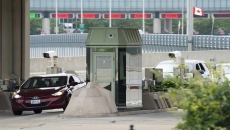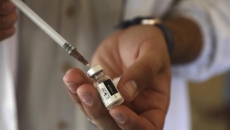Fully vaccinated U.S. citizens and permanent residents can now enter Canada for non-essential purposes for the first time since March 2020, when the COVID-19 pandemic forced the two countries to severely curtail travel.
Still, there are stringent requirements and rules in place that need to be followed to ensure crossing into Canada goes smoothly. Here are five key questions to consider before making a run for the (northern) border:
1. What constitutes being "fully vaccinated," as far as the Canada Border Services Agency is concerned?
Several things. First, eligible travellers must have completed a full course of one of the four COVID-19 vaccines approved by Health Canada: Pfizer-BioNTech, Moderna, Oxford-AstraZeneca (also known as Covishield) or the single-dose Johnson & Johnson shot. No other vaccines are allowed. Secondly, and this is critical: 14 full days must have elapsed since the last dose, otherwise a person is not considered fully vaccinated.
2. Can I just show my vaccination card to the border agent?
No. Vaccination details must be uploaded to the agency by way of ArriveCAN, an online system that can be accessed either through the iPhone or Android app or via computer at the following web address: www.canada.ca/en/public-health/services/diseases/coronavirus-disease-covid-19/arrivecan.html. Access to the system is not available until 72 hours before a traveller is scheduled to cross the border. When using the app, be sure to update it first; a new version is made available every time the regulations change. And don't even try to fake your way in; a pair of travellers who uploaded phoney vaccination cards and lied about their test results last month were each hit with nearly $20,000 in fines.
3. What else do I need?
Proof that you are a U.S. citizen or permanent resident who lives full-time in the States, as well as a negative result from a molecular test for COVID-19, administered no more than 72 hours prior to reaching a border crossing point. So-called "antigen" tests are not permitted. Visitors are also required to keep the proof of their test results for a full 14 days upon entering Canada. Test documents, be they paper or electronic, must show:
— The traveller's name and date of birth;
— The name and address of the facility that administered the test;
— The date the test was conducted, the type of test and, of course, the test result.
Incidentally, fully vaccinated Canadian citizens and permanent residents are also eligible to enter Canada without having to quarantine, provided they meet all the same conditions and requirements.
4. Anything else I should know?
Yes. Canadian border agents are randomly selecting otherwise eligible travellers for spot pre-entry COVID-19 testing, so be prepared to submit to a test before being allowed in. You should also have a quarantine plan ready and available to show the agent in the event that you develop symptoms of COVID-19, test positive at the border or otherwise don't fully qualify for the exemption. Also, expect to wait awhile: the additional screening measures are slowing things down a lot at certain entry points (a full seven hours Monday at the Fort Frances bridge between Minnesota and northern Ontario). If you're driving, check out CBSA's wait-times website at www.cbsa-asfc.gc.ca/bwt-taf/menu-eng.html to see if there's a better route to take.
5. I'm otherwise eligible to enter Canada, but I've already had COVID-19 and I'm still testing positive. What can I do?
Provided you are currently symptom-free, you can show proof of a positive COVID-19 molecular test that was conducted between 14 and 90 days prior to trying to enter Canada. However, you will still need to show the results of a molecular test that's less than 72 hours old, even if the result is positive.






